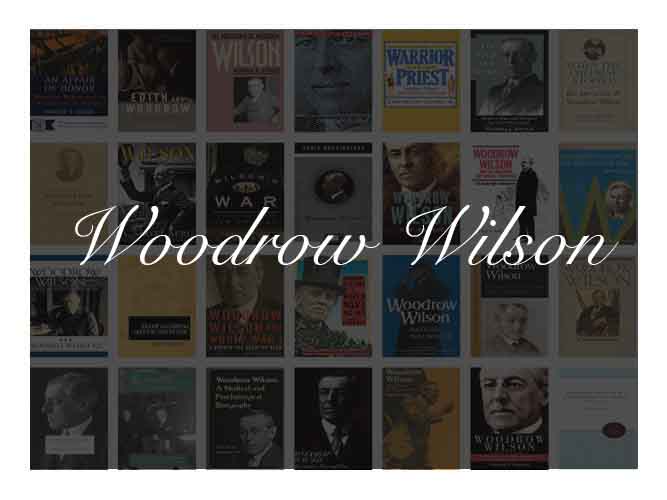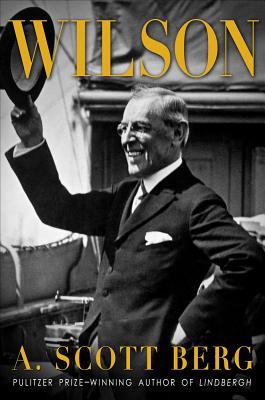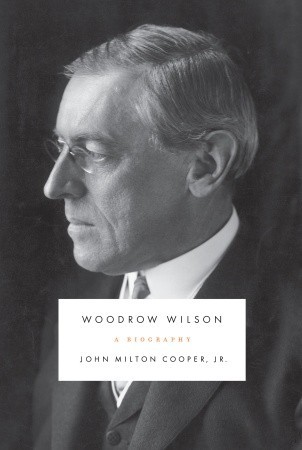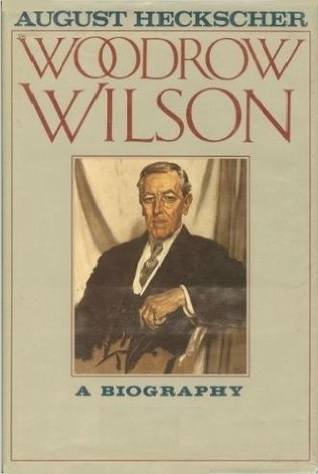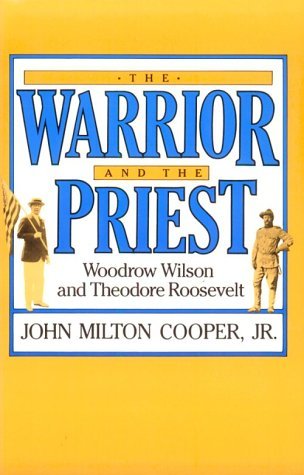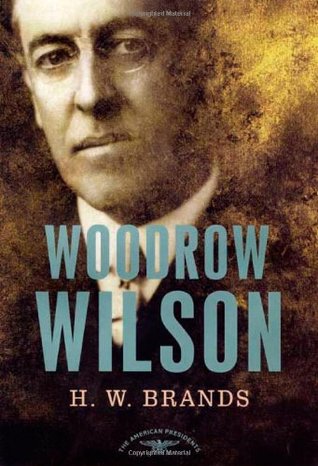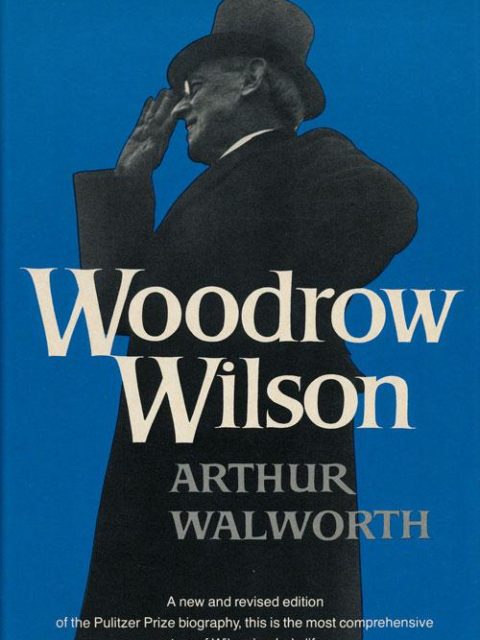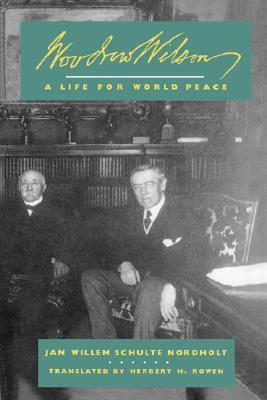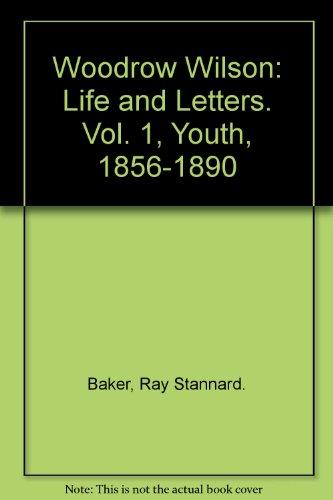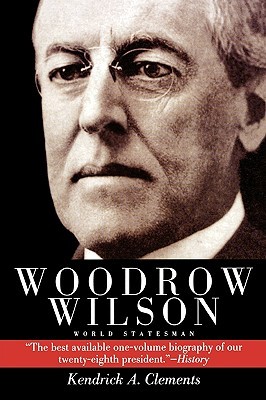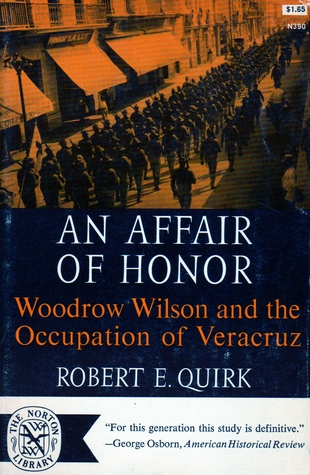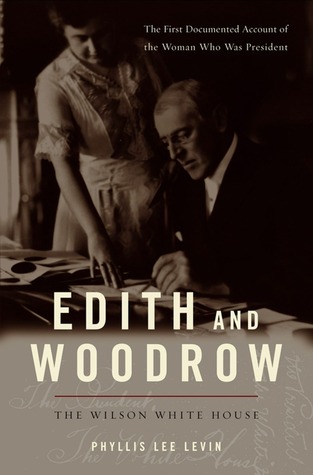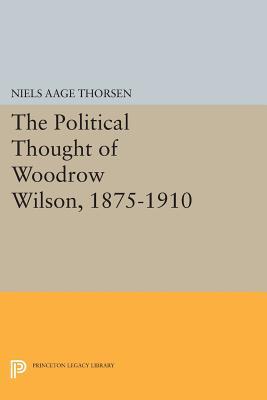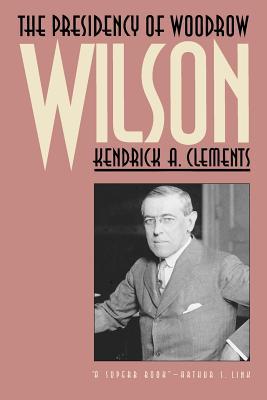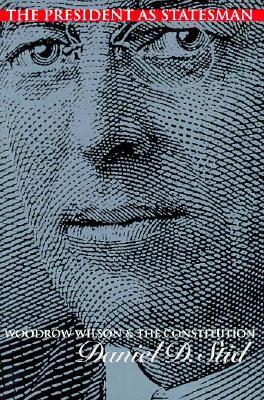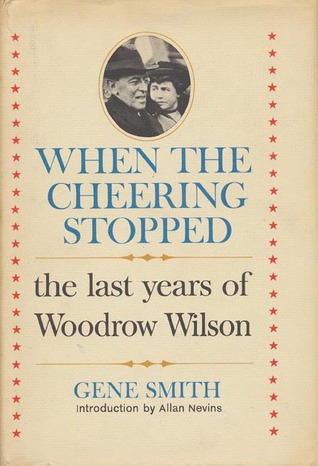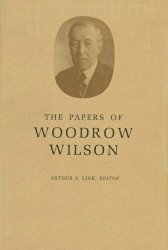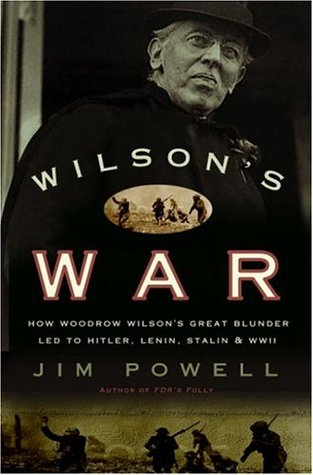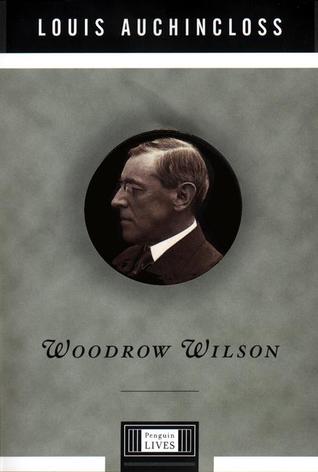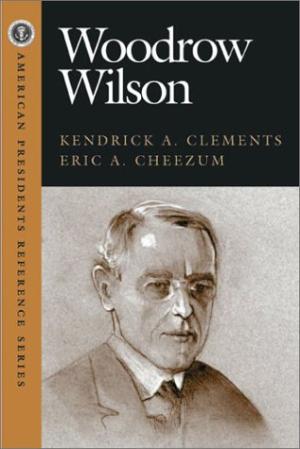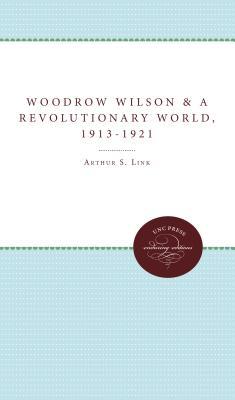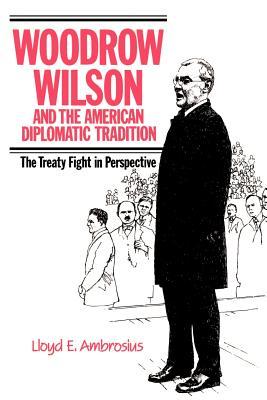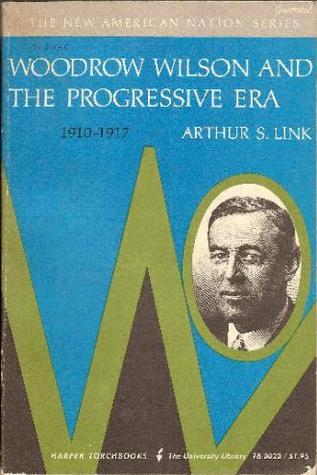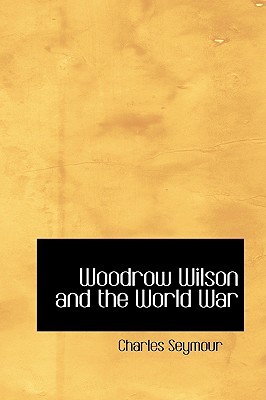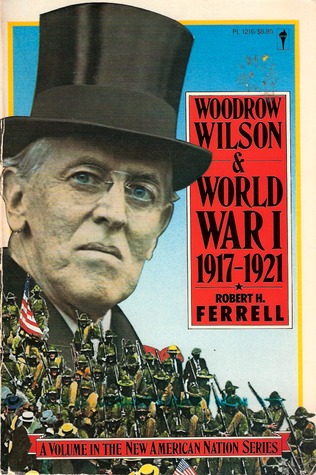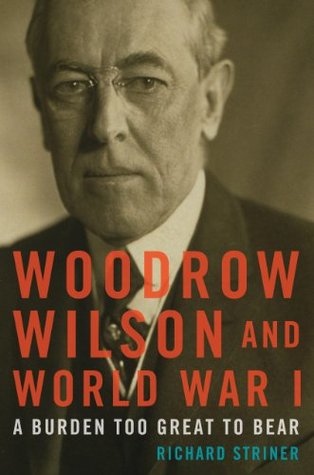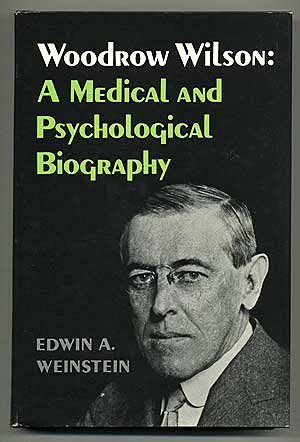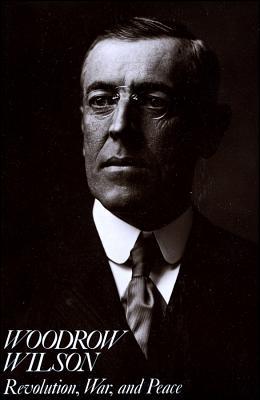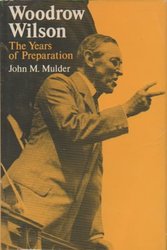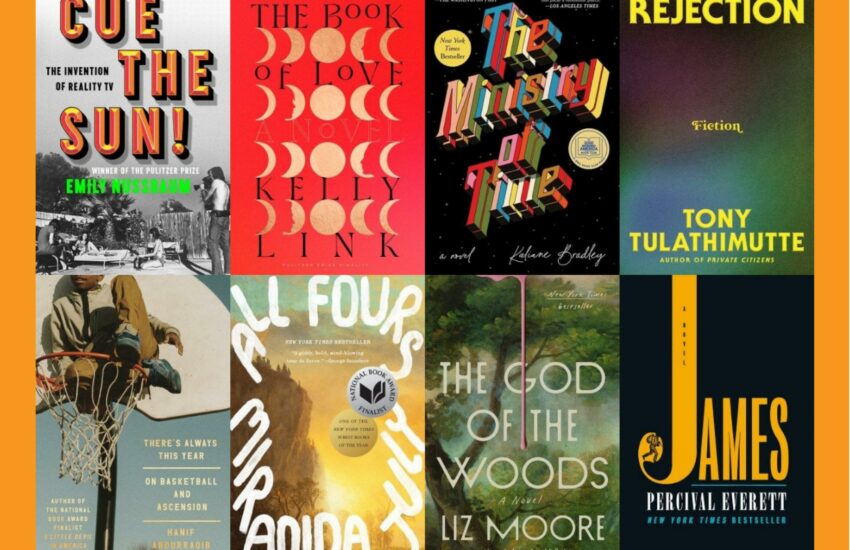The Best Books To Learn About President Woodrow Wilson
(You can view the rest of our presidential Best Book lists by going to our Best US President Books page, or for a more in-depth look at how we found and ranked the books you can visit our Best Book About Every United States President article.)
Woodrow Wilson Quick Facts |
| President Number | 28 |
| Terms In Office | 2 |
| Years | 1913-1921 |
| Political Party | Democratic |
| Vice President | Thomas R. Marshall |
| Home State | New Jersey |
| Presidential Pet | Dogs, Ram (Old Ike), Songbirds, Sheep |
| Campaign Slogan | “He has kept us out of war.” & “He proved the pen mightier than the sword.” & “War in the East, Peace in the West, Thank God for Woodrow Wilson.” |
| Articles Used in Ranking | 12 |
| Number of Unique Books | 31 |
The Best Book About Woodrow Wilson
(Appears on 6 Lists)
Wilson by A. Scott Berg
- At Times Dull
- Best Presidential Bios
- Library of Congress
- Mashable
- Presidential History
- Presidents USA
One hundred years after his inauguration, Woodrow Wilson still stands as one of the most influential figures of the twentieth century, and one of the most enigmatic. And now, after more than a decade of research and writing, Pulitzer Prize–winning author A. Scott Berg has completed Wilson—the most personal and penetrating biography ever written about the twenty-eighth President.
#2
(Appears on 5 Lists)
Woodrow Wilson: A Biography by John Milton Cooper Jr
- Best Presidential Bios
- Mandi Lindner
- Presidents USA
- The Tailored Man
- The Washington Post
A Democrat who reclaimed the White House after sixteen years of Republican administrations, Wilson was a transformative president—he helped create the regulatory bodies and legislation that prefigured FDR’s New Deal and would prove central to governance through the early twenty-first century, including the Federal Reserve system and the Clayton Antitrust Act; he guided the nation through World War I; and, although his advocacy in favor of joining the League of Nations proved unsuccessful, he nonetheless established a new way of thinking about international relations that would carry America into the United Nations era. Yet Wilson also steadfastly resisted progress for civil rights, while his attorney general launched an aggressive attack on civil liberties.
#3
(Appears on 3 Lists)
Woodrow Wilson by August Heckscher
- Best Presidential Bios
- Library of Congress
- Presidential History
#4-10
(Appear on 2 List)
The Warrior and the Priest: Woodrow Wilson and Theodore Roosevelt by John Milton Cooper
- Best Presidential Bios
- Library of Congress
The colossal figures who shaped the politics of industrial America emerge in full scale in this engrossing comparative biography. In both the depth and sophistication of intellect that they brought to politics and in the titanic conflict they waged with each other, Roosevelt and Wilson were, like Hamilton and Jefferson before them, the political architects for an entire century.
To End All Wars: Woodrow Wilson and the Quest for a New World Order by Thomas J. Knock
- Library of Congress
- Presidents USA
In his widely acclaimed To End All Wars, Thomas Knock provides an intriguing, often provocative narrative of Woodrow Wilson’s epic quest for a new world order. The account follows Wilson’s thought and diplomacy from his policy toward revolutionary Mexico, through his dramatic call for “Peace without Victory” in World War I, to the Senate’s rejection of the League of Nations. Throughout Knock explores the place of internationalism in American politics, sweeping away the old view that isolationism was the cause of Wilson’s failure and revealing the role of competing visions of internationalism–conservative and progressive.
Woodrow Wilson by H.W. Brands
- All The Presidents Books
- Library of Congress
On the eve of his inauguration as President, Woodrow Wilson commented, “It would be the irony of fate if my administration had to deal chiefly with foreign affairs.” As America was drawn into the Great War in Europe, Wilson used his scholarship, his principles, and the political savvy of his advisers to overcome his ignorance of world affairs and lead the country out of isolationism. The product of his efforts―his vision of the United States as a nation uniquely suited for moral leadership by virtue of its democratic tradition―is a view of foreign policy that is still in place today.
Woodrow Wilson (American Prophet and World Prophet) by Arthur Walworth
- Best Presidential Bios
- Library of Congress
Woodrow Wilson: A Life for World Peace by J. Schulte Nordholt
- Library of Congress
- Presidents USA
Wilson’s presidency occurred during some of the most brutal, divisive years of our century. In a period of revolutionary social change and conflict, he steadfastly believed that ideas were stronger than facts. This was nowhere more evident than in his eleventh-hour attempts to find a diplomatic solution on the eve of the Great War. His unswerving belief in people’s right to self-determination was, sadly, unrealistic in the postwar political framework of the League of Nations.
Woodrow Wilson: Life and Letters by Ray Stannard Baker
- Best Presidential Bios
- Library of Congress
Woodrow Wilson: World Statesman by Kendrick Clements
- Best Presidential Bios
- Library of Congress
Wilson’s visionary temperament and quick-paced leadership made him a uniquely articulate champion of the most essential American values. His policies, perhaps more so than any other president in this century, have shaped the world today. In this comprehensive biography, Kendrick Clements examines the brilliant successes as well as the failures of Wilson’s public career as professor, president of Princeton University, governor of New Jersey, and president. Tempering the impression of Wilson as a stiff moralist, Mr. Clements reveals fascinating details of his periodic bouts of depression. But the recurrent themes of this balanced and engrossing portrait are Wilson’s deep idealism and his drive for leadership. “The best available one-volume biography of our twenty-eighth
#11-31
(Appear on 1 List)
Affair of Honor Woodrow Wilson and the Occupation of Veracruz by Robert E. Quirk
- Presidents USA
In April 1914 three minor incidents occurred in Mexico: the arrest of several American sailors, the detention of a mail courier, and the delay of an official Department of State dispatch. Less than two weeks later, United States military forces landed at Veracruz and remained to occupy it for more than six months. What were the causes underlying this action, and what was the United States trying to achieve? Robert Quirk examines the motives which led Woodrow Wilson to this decision, the reasons for its failure, and its consequences for the United States’ relations with Latin America.
Edith and Woodrow: The Wilson White House by Phyllis Lee Levin
- Library of Congress
Elegantly written, tirelessly researched, full of shocking revelations, “Edith and Woodrow offers the definitive examination of the controversial role Woodrow Wilson’s second wife played in running the country. “The story of Wilson’s second marriage, and of the large events on which its shadow was cast, is darker and more devious, and more astonishing, than previously recorded.” — from the Preface Constructing a thrilling, tightly contained narrative around a trove of previously undisclosed documents, medical diagnoses, White House memoranda, and internal documents, acclaimed journalist and historian Phyllis Lee Levin sheds new light on the central role of Edith Bolling Galt in Woodrow Wilson’s administration. Shortly after Ellen Wilson’s death on the eve of World War I in 1914, President Wilson was swept off his feet by Edith Bolling Galt.
Ellen Axson Wilson: First Lady Between Two Worlds by Frances Wright Saunders
Lists It Appears On:
- Library of Congress
The Political Thought of Woodrow Wilson by Niels Thorsen
- Library of Congress
Niels Thorsen argues that Woodrow Wilson was one of America’s most important political scientists. Focusing on the period from Wilson’s early years until he was elected Governor of New Jersey, this work shows why he deserves a prominent place in the history of American political thought, even apart from his later attainments in the political arena. His book Congressional Government, his seminal article on “The Study of Public Administration,” and his textbook on The State were important contributions during the formative years of academic political science in America. In contrast to those who propose psychological explanations of Wilson’s early interest in political problems, Thorsen contends that the crisis of the election of 1876 against the backdrop of the Civil War was decisive in turning Wilson’s attention to political ideas.
The Presidency of Woodrow Wilson by Kendrick A. Clements
- Library of Congress
The Presidency of Woodrow Wilson is the best one-volume study available on this very productive presidency. Historian Kendrick Clements analyzes the reasons for Wilson’s successes and failures in both domestic and foreign arenas, and investigates representative administrative departments to find out how the Wilson administration actually worked. Drawing upon the latest secondary literature and recently discovered medical records, Clements also reexamines the impact of Wilson’s illness on his diplomatic and domestic leadership in the last year and a half of his presidency.
The President as Statesman: Woodrow Wilson and the Constitution by Daniel D. Stid
- Library of Congress
A political scientist who went on to become president, Woodrow Wilson envisioned a “responsible government” in which a strong leader and principled party would integrate the separate executive and legislative powers. His ideal, however, was constantly challenged by political reality. Daniel Stid explores the evolution of Wilson’s views on this form of government and his endeavors as a statesman to establish it in the United States. The author looks over Professor and then President Wilson’s shoulder as he grappled with the constitutional separation of powers, demonstrating the importance of this effort for American political thought and history.
When the Cheering Stopped: The Last Years of Woodrow Wilson by Gene Smith
- Library of Congress
Wilson 5 vols by Arthur Stanley Link
- Library of Congress
Wilson’s War: How Woodrow Wilson’s Great Blunder Led to Hitler, Lenin, Stalin, and World War II by Jim Powell
- Presidents USA
Wilson’s War reveals the horrifying consequences of our twenty-eighth president’s fateful decision to enter the fray in Europe. It led to millions of additional casualties in a war that had ground to a stalemate. And even more disturbing were the long-term consequences—consequences that played out well after Wilson’s death. Powell convincingly demonstrates that America’s armed forces enabled the Allies to win a decisive victory they would not otherwise have won—thus enabling them to impose the draconian surrender terms on Germany that paved the way for Adolf Hitler’s rise to power.
Woodrow Wilson by Louis Auchincloss
- Library of Congress
Woodrow Wilson by Kendrick Clements and Eric A.
- Library of Congress
Woodrow Wilson was elected the 28th president of the United States in 1912. This volume of his presidency covers: his reformist-natured domestic policies; World War I, the Fourteen Points and the League of Nations; and the role of Edith Bolling Wilson in the Wilson Presidency.
Woodrow Wilson and a Revolutionary World, 1913-1921 by Arthur Stanley Link
- Library of Congress
In a dazzling array of the most recent research and writing, the contributors deal with Wilson’s approach to the Mexican and Russian revolutions; his Polish policy; his relationship with the European Left, world order, and the League of Nations; and Wilson and the problems of world peace. They show that Wilson was in many ways the pivot of twentieth-century world affairs; his commitment to anticolonialism, antiimperialism, and self-determination still guides U.S. foreign policy.
Woodrow Wilson and the American Diplomatic Tradition: The Treaty Fight in Perspective by Lloyd E. Ambrosius
- Presidents USA
Woodrow Wilson and the Progressive Era, 1910-1917 by Arthur Stanley Link
- Library of Congress
This is a reproduction of a book published before 1923. This book may have occasional imperfections such as missing or blurred pages, poor pictures, errant marks, etc. that were either part of the original artifact, or were introduced by the scanning process. We believe this work is culturally important, and despite the imperfections, have elected to bring it back into print as part of our continuing commitment to the preservation of printed works worldwide. We appreciate your understanding of the imperfections in the preservation process, and hope you enjoy this valuable book.
Woodrow Wilson and the Roots of Modern Liberalism by Ronald J. Pestritto
- Presidents USA
Woodrow Wilson and the Roots of Modern Liberalism highlights Wilson’s sharp departure from the traditional principles of American government, most notably the Constitution. Ronald J. Pestritto persuasively argues that Wilson’s unfailing criticism places him clearly in line with the Progressives’ assault on the original principles of American constitutionalism. Drawing primarily from early writings and speeches that Wilson made during his years as a scholar, Pestritto examines the future president’s clear and consistent ideologies that laid the foundation for later actions taken as a public leader.
Woodrow Wilson and the World War A Chronicle of Our Own Times by Charles Seymour
- Presidents USA
Unlike some other reproductions of classic texts (1) We have not used OCR(Optical Character Recognition), as this leads to bad quality books with introduced typos. (2) In books where there are images such as portraits, maps, sketches etc We have endeavoured to keep the quality of these images, so they represent accurately the original artefact. Although occasionally there may be certain imperfections with these old texts, we feel they deserve to be made available for future generations to enjoy.
Woodrow Wilson and World War I, 1917-1921 by Robert H. Ferrell
- Library of Congress
Woodrow Wilson and World War I: A Burden Too Great to Bear by Richard Striner
- Presidents USA
Woodrow Wilson is often considered one of the greatest presidents in American history because, in the first two years of his presidency, he succeeded on many fronts. However, acclaimed author and historian Richard Striner now makes the case that a presidency that is too often idealized was full of missteps and failures that profoundly affected America’s politics and people long after it ended. While other negative assessments of Wilson’s leadership have been one-sided, Striner’s critique—though undoubtedly scathing—is judicious, nuanced, and fair. With detailed description and accessible prose, Striner sheds light on how—as soon as America entered World War I—flaws of Wilson’s were exposed as the pressure on his administration mounted. This book is a story of presidential failure, a chronicle of Woodrow Wilson’s miscalculations in war, and a harrowing account of the process through which an intelligent American leader fell to pieces under a burden he could not bear.
Woodrow Wilson: A Medical and Psychological Biography by Edwin A. Weinstein
- Library of Congress
Throughout this narrative the author combines the historical material with an expert understanding of Wilson’s ailments to point out ways in which the state of his health changed the course of national and international events. Originally published in 1981. The Princeton Legacy Library uses the latest print-on-demand technology to again make available previously out-of-print books from the distinguished backlist of Princeton University Press. These paperback editions preserve the original texts of these important books while presenting them in durable paperback editions. The goal of the Princeton Legacy Library is to vastly increase access to the rich scholarly heritage found in the thousands of books published by Princeton University Press since its founding in 1905.
Woodrow Wilson: Revolution, War, and Peace by Arthur S. Link
- Presidents USA
Professor Arthur S. Link, Director and Editor of The Papers of Woodrow Wilson, brings his considerable expertise and understanding of Wilson the man and the diplomat to this reexamination of Wilson’s handling of foreign affairs. Link explores the ideas, assumptions, and ambitions that guided Wilson’s methods of forming policy, and his diplomatic techniques. The author also goes on to consider some of the larger questions concerning Wilson’s desire for neutrality, American entry into World War I, and Wilson’s fight for American membership in the League of Nations.
Woodrow Wilson: The Years of Preparation by John M. Mulder
- Library of Congress
To probe the nature of Woodrow Wilson’s intellectual development, this book focuses on the relationship between his religious thought and other areas of his life, from his years as a student and professor through those of his presidency of Princeton University. Professor Mulder draws fully on The Papers of Woodrow Wilson, describing a complex individual and advancing our knowledge of the role of religion in American politics.
The Best Woodrow Wilson Book Lists Consulted
| Source | Article |
| All The Presidents Books | One Through Forty-Two or Forty-Three |
| At Times Dull | Janet’s Presidential Biography Project & Blog |
| Best Presidential Bios | The Best Presidential Biographies |
| Huffington Post | Presidents’ Day History: The Must-Reads Of Presidential Biographies |
| Library of Congress | Selected Bibliography |
| Mandi Lindner | 44 Presidents and Their Definitive Biographies |
| Mashable | Why I’m spending a year reading about every U.S. president |
| Presidential History | Presidential Resources |
| Presidential History (Again) | Pulitzer Prize Winning Books About Presidents |
| Presidents USA | FURTHER INFORMATION ABOUT WOODROW WILSON |
| The Tailored Man | The 44 Best Presidential Biographies |
| The Washington Post | The Fix’s list of best presidential biographies |
